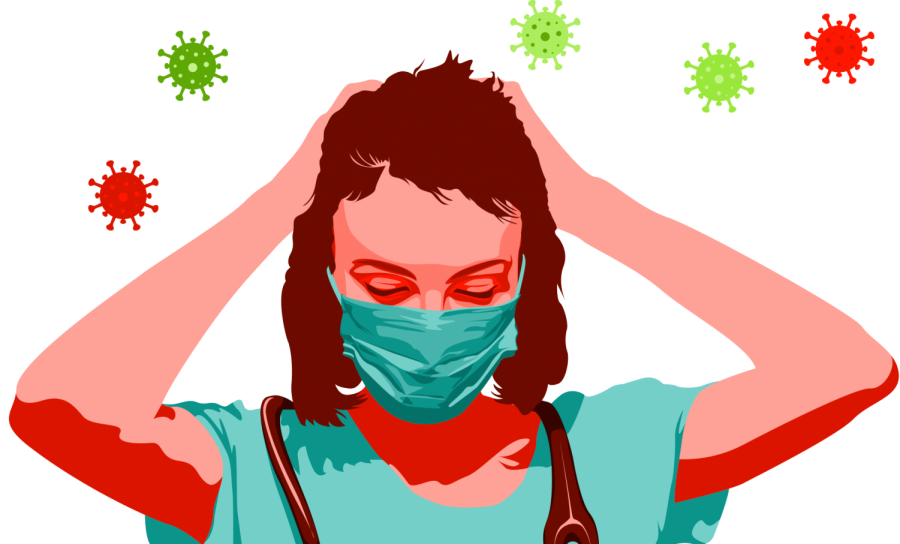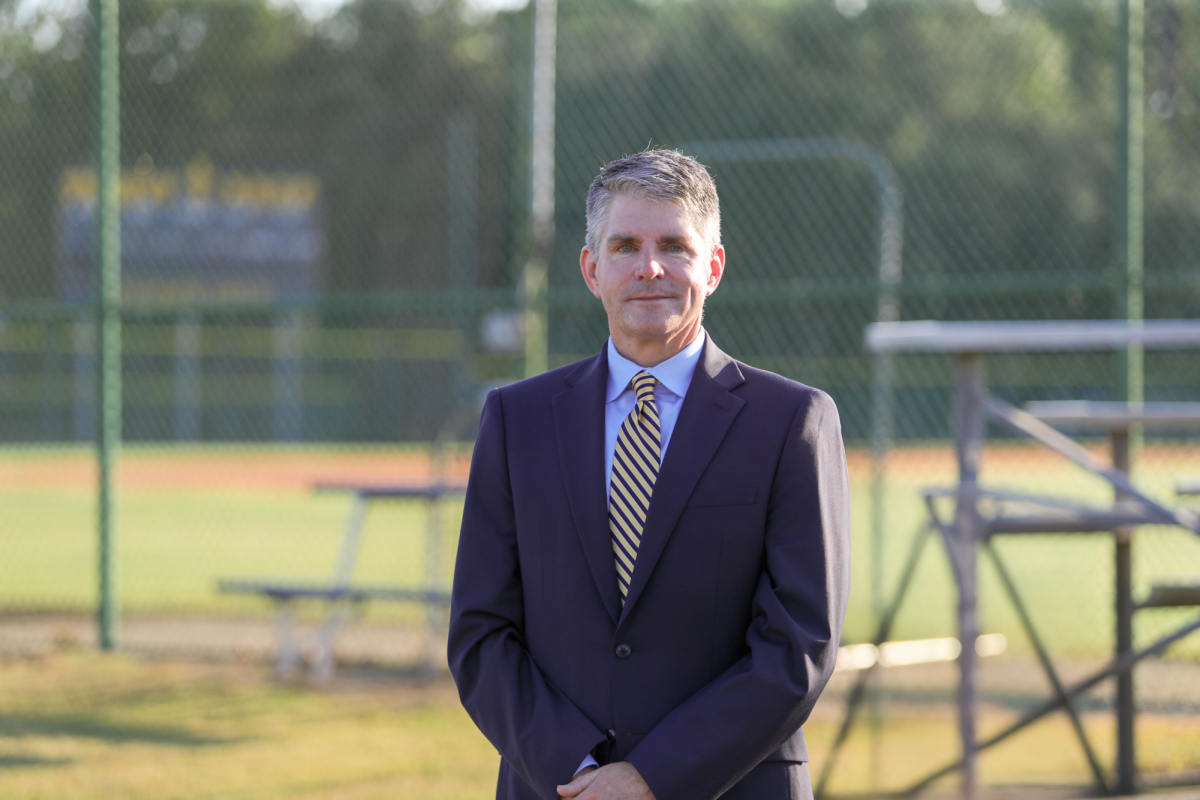In a 2020 survey from the American Medical Organization which was responded to by over 15,000 physicians, 42% said they were burned out. While burnout has always been a problem in medicine, COVID-19 has only made it worse.
Because of COVID-19, many doctors are doing more work for less pay. Along with this, the fear of getting COVID-19 creates added concern. This issue of burnout is especially problematic because it reduces the standard of care for patients.
“It’s terrible for the patients because they’re not getting somebody who’s invested in their care,” emergency room doctor and Trinity parent Latha Ganti said. “If a physician is burned out, then they’re just going to go through the motions. They can’t put in any more than just that.”
Being a physician is inherently stressful, as they have the lives of their patients in their hands. Mistakes can be deadly, and so doctors are under a lot of pressure to perform well.
“There is no profession that gives more of themselves physically, mentally [and] emotionally to others as does a physician,” Ganti said.
Right now, the major stressor for many physicians is overwork and underpay. This problem was exacerbated by COVID-19 because, according to Ganti, at the start of the pandemic most hospitals cut staffing and hourly rates. This means that many doctors worked fewer hours and were paid less for the hours they did work, since fewer people were coming into the hospital for non-emergency issues.
However, Ganti explained that even as patient volumes return to normal, many hospitals have still not brought up the staffing or hourly rates. This leaves many physicians doing triple the work for half the pay. So, many physicians are now overleveraged, burned out, and on top of that cannot afford to take time off.
“Many of my colleagues are heavily in debt, need the job and are willing to work no matter what the pay or working conditions are, and that’s why they’re really burned out,” Ganti said.
COVID-19 has also affected the mental health of doctors by causing concern for not only their own health but also that of their families. Ganti lives with both her 6-year-old daughter and 83-year-old father, who are both considered to be at high-risk for COVID-19. She explained that she knew that if her father got COVID-19, he could die. She also worried about lifelong complications that could arise if her daughter got sick.
“Now, you go to work and I’m just like ‘Oh God, I hope I don’t get COVID,’” Ganti said. “I keep my N-95 mask on all the time, and I have my shield on, and I’m yelling at work because they can’t hear me through my mask.”
Another major cause of burnout is the increase of computerization and bureaucratic duties in medicine. According to Ganti, these duties degrade physicians’ mental health because they force doctors to focus on filling out forms and documentation rather than actually taking care of the patient. This takes away the passion and professionalism of being a doctor.
“One of the things I used to love doing as a physician [which] I know sounds really silly but is writing a prescription, because I used to feel like a doctor,” Ganti said. “Now everything is electronic. There is no joy left.”
A few other frustrations for physicians come with time metrics and patient satisfaction. Time metrics require physicians to discharge their patients within a certain amount of time, and patient satisfaction refers to the ratings doctors get from their patients. Ganti explained that some hospitals will tie these scores to physicians, which can in some cases lead to reduced pay for those who are given poor scores. Ganti believes to be harmful because they take away doctors’ agency in how they handle their patients.
“We are not a store or a restaurant, we’re the emergency room,” Ganti said. “This is healthcare, and sometimes patients will not like what I tell them … then they can just write me a bad review.”
Even though all of these issues are damaging to the mental health of physicians on their own, they are further exacerbated because of the culture of stoicism surrounding mental health in medicine.
“You’re not supposed to want or need mental health days,” Ganti said. “You’re supposed to be invincible and you’re never supposed to be tired.”
According to Ganti, coming forward about mental health issues for physicians can also cause other consequences. According to an article by the American Medical Association, many U.S. Medical Boards probe overly broadly regarding mental health history on relicensing forms, which can make it challenging for those with mental health problems to get relicensed. Also, coming forward with mental health issues can potentially increase employees’ premiums on their insurance. Both of these factors contribute heavily to the large percentage of physicians who are reluctant about seeking help.
However, even among all of these issues, Ganti is still hopeful for the future of how mental health is handled in this field.
“Unlike my generation that was very much like shut up and suck it up, the students of today are smarter,” Ganti said. “They will say this is not right, and they will speak up, and they will stand up.”















